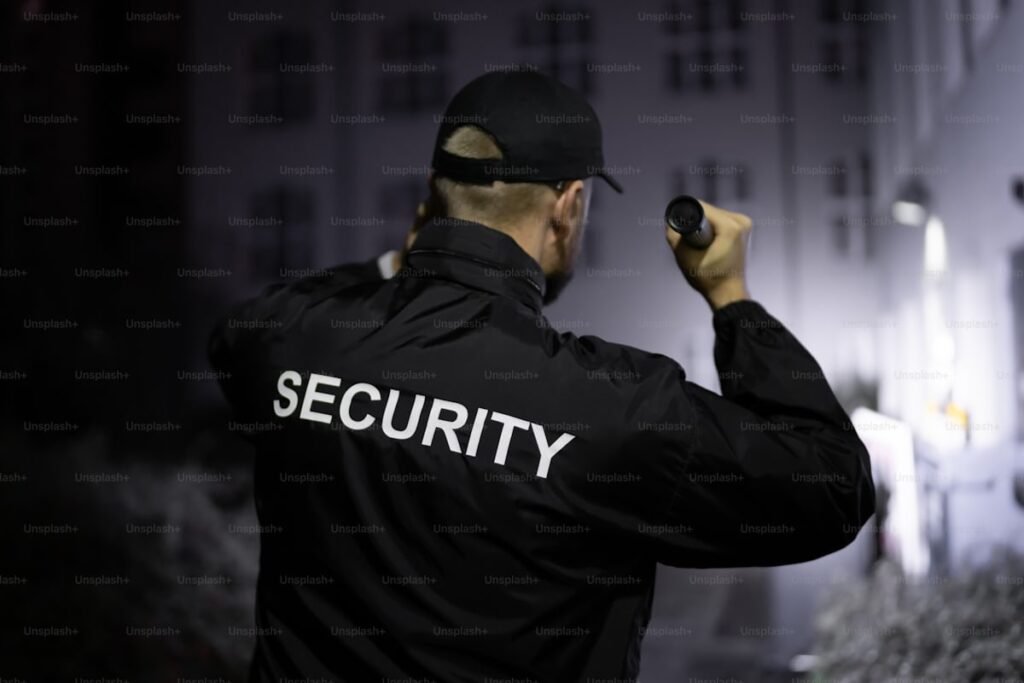Security is one of those things we only notice when it’s missing. Like Wi-Fi during a Netflix binge or coffee on a Monday morning. But behind the calm exterior of shopping malls, banks, apartment buildings, and even your neighborhood night shift lies a web of wisdom known as the rules for security.
These rules aren’t just policies. They’re a blend of street smarts, ethics, legal boundaries, and a dash of philosophy. Because when you give someone the job of guarding others, what you’re really handing them is power. And we all know it is not easy to handle power.
Let’s dive into these rules with curiosity and logic:
1. Security Isn’t Superhero Work
Security guards don’t have X-ray vision or unlimited authority, as we often see in the movies. They’re more like vigilant, resourceful, and all the time working behind the scenes.
According to the golden rules for security, a guard can’t just arrest you because you “look suspicious” or because you reached for the last donut. As per law, if they witness a crime or have reasonable cause, they can only detain someone under citizen’s arrest. They’re the guardians of order, not the enforcers of justice.
2. Detainment is not equal to jail time
Picture this: You’re in a store, someone thinks you’re shoplifting, and suddenly a uniformed stranger blocks your way. Panic? Maybe. But here’s the scoop.
Security guards can detain you temporarily. But—and this is a big but—they must have reasonable suspicion and treat you with respect. It’s not an interrogation chamber. It’s more like a very awkward waiting room until the police arrive.
3. Use of Force? Not without Cause
Security isn’t about brawn; it’s about balance. The rules for security say that force should only be used when absolutely necessary. Think of last resort, not first reaction. We’re talking proportionate, reasonable, justified force. Anything else? That’s not security. That’s assault.
A good guard de-escalates before they dominate. They talk people down, not tear them apart. Like Gandhi with a radio.
4. De-escalation is the New Superpower
The best security professionals aren’t the ones who are the loudest in the room. They’re the calm in chaos, the cool heads in heated moments. The goal is to prevent drama, not star in it.
A quiet tone most of the time works much better than shouting “STOP RIGHT THERE!” as we have always seen in the action movies. The secrets are de-escalation and emotional intelligence.
5. Rights Are Not Optional
Here’s something that would make both Socrates and your civics teacher proud: security guards must respect constitutional rights.
That means
- No unlawful searches
- No privacy invasions
- No profiling based on race, gender, or that Nirvana T-shirt you’re wearing from 1997.
Security done right is protective, not oppressive. You shouldn’t have to trade dignity for safety.
6. Uniforms, Badges, and the Power of Presence
There’s a reason superheroes wear capes and guards wear uniforms; it’s all about presence. Guards should always be identifiable. No shady plainclothes nonsense. Transparency builds trust. And when you’re guarding people, trust is your biggest weapon.
If someone in jeans and sunglasses tries to detain you without showing ID, your inner philosopher should scream, “Question everything!”
7. Paper Trails Matter
Security is not about performing actions. It is about managing things well. Every incident must be documented for the record. One must be able to answer all the W’s, like who, what, when, where, and why. If it’s not written down, it didn’t happen legally. This isn’t about bureaucracy; it’s about accountability. And sometimes, that truth lives in paperwork.
8. Training Day Is Every Day
Security training isn’t a one-and-done thing. The rules for security require continuous learning, like personal growth, but with surveillance cameras.
Whether it’s CPR, conflict resolution, or the ever-evolving laws around detainment, guards must stay sharp. Because a well-trained guard prevents problems before they escalate into headlines.
9. There’s Security, and Then There’s Smart Security
Different jobs, different rules:
- A bodyguard doesn’t operate like a mall guard.
- Event security doesn’t treat fans like criminals.
- Unarmed guards have different boundaries than armed ones.
It’s not one-size-fits-all. It’s tailored protection. Like James Bond in a tux—strategic, subtle, and specific.
10. Ethics: The Invisible Armor
Rules are very essential for any service to function properly. Security needs some integrity so that the duties are not taken for intimidation. The best guards lead with empathy and stay cool under pressure. They are not supposed to abuse their position. This is where the rules for security become more than policy.
11. Know Your Rights, Not Just the Rules
If you’re ever detained by a security guard, remember:
- Ask for ID.
- Stay calm.
- Don’t consent to a search unless legally required.
- Request police if the situation escalates.
You’re not powerless. Knowledge is your guidance. And if your sixth sense tells you something is off. You need to take an action and speak up at the moment.
12. Security + Police = Teamwork
Security guards are not the replacements for the police officers. They are there to take the initial step, just like the first aid given at the time of emergency before taking the patient to the hospital.
Good security knows when to call for backup. They completely know their boundaries and their role as well. Their real power is knowing when to step back.
Final Thoughts: What Security Really Means
Security is not confined to just doors locked and threats stopped. It’s about safeguarding people and protecting without overpowering. It is also about guarding without controlling and leading without ego. From the wisdom of philosophers to the cautionary tales of everyday life, one truth remains:
Real security isn’t just what you do; it’s how you do it. So next time you see a security guard, remember: they’re not just a uniform. They’re part philosopher, part protector, part peacekeeper. And the best among them? They follow the rules, not just of the handbook, but of humanity.

